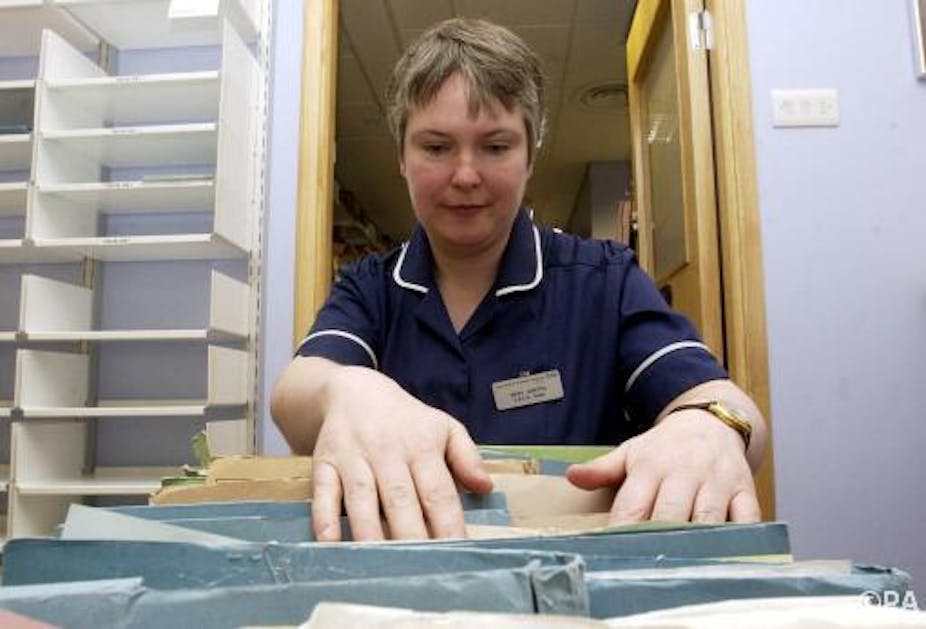Recent reports have indicated that the Home Office has enjoyed access to the NHS records of more than 6,900 people since 2010, and used information from them for ramped-up efforts to track down illegal migrants.
While data protection laws protect medical records from most types of scrutiny, a largely overlooked exemption has allowed the government to directly access patients’ non-clinical records. No court order is required for this access.
The use (or abuse) of this legal loophole in the keeping of medical records is not just a breach of privacy; it seriously undermines efforts to safeguard migrants’ human rights. And while the immigration authorities have a legitimate obligation to enforce immigration laws, violating human rights is not the way to go about it. On the contrary, it will only drive migrants underground – and put us all at risk at the same time
Living without fear
Last year, Francois Crepeau, the United Nations Special Rapporteur on the Human Rights of Migrants, presented a report on Europe to the UN Human Rights Council. In it, he called upon states, at the very least, to build firewalls. These would allow irregular migrants to access healthcare, police and other services without fear that their information could be shared with the immigration authorities, and their immigration status exposed.
Firewalls are not just important for the rights individuals exposed to the Home Office; they also have a potentially major role in protecting the wider public.
Irregular migrants who are victims of or witnesses to a crime must be able to call upon and assist the police without fear of repercussion. Without a firewall between the police and the Home Office, serious criminals who prey on vulnerable irregular migrants are less likely to be arrested or prosecuted. That is true of opportune criminals who do not know that the victims’ immigration status, but also of criminals who prey on such people knowing that they are unlikely to call the police.
A firewall would also ensure that irregular migrants are able to access social services without fear of repercussion. This is vital for the safety of children, the well-being of individuals with disabilities, and the protection of other vulnerable family members.
And as for the current example of healthcare, firewalls would allow irregular migrants to access healthcare providers without fear of their status being revealed. This is crucial not only for their own sakes, but also for ensuring that the general population is protected from the spread of diseases, both through vaccination of all children and the containment of infectious diseases such as tuberculosis, swine flu, and other potential epidemics.
Urgent need
Firewalls ensure that a state’s power to expel irregular migrants ought not to interfere with migrants’ ability to access services which are their right. If migrants’ human rights are to be protected, they ought to be able to interact with public administrations without fear of being denounced, arrested, detained and deported.
Many service providers, among them schools and labour inspectors or tribunals (to name a couple), are already prohibited from providing data to immigration authorities. But the recent reports about the use of medical data demonstrate that the UK urgently needs to formally separate its security and human rights concerns.
Human rights, like Ronseal, are exactly what they say on the tin: all people hold them by virtue of being human. Crossing a border in contravention of a law does not dehumanise a person.
Individuals in the UK, be they citizens or migrants, have the right to access healthcare services, adequate housing and food, to be free from enforced slavery, to enjoy minimum standards of working conditions, and to have access to justice – among many other rights.
The UK, which is and always has been a leader within the modern human rights movement, has an obligation to uphold the rights of all individuals within its territory, regardless of their immigration status. That is the nature and foundation of international human rights law.
Backwards step
By using medical records for immigration control purposes, the Home Office is taking a backwards step on protecting and promoting the rights of all people. Irregular migrants will obviously realise that healthcare data is open to scrutiny by the immigration authorities; they will be more reluctant to access healthcare and other services. That will lead to violations of their rights across a range of areas and serious knock-on effects for all of us.
Some British citizens, of course, are hardly concerned with the rights of irregular migrants – despite their being human beings, and therefore legal and moral holders of those rights. But even these hawkish people ought to worry that hindering migrants from safely and privately accessing public services will only endanger the wider population.
The only sensible solution, and the only truly moral one, is to close this gaping legal loophole. Firm and effective firewalls must be put up where they are still sorely lacking; if this is not done, we will all pay for it in the end.

